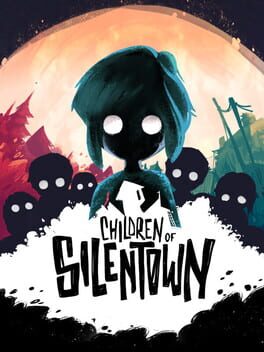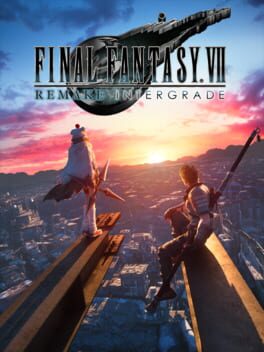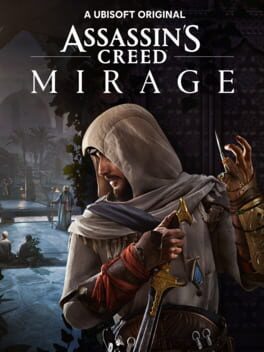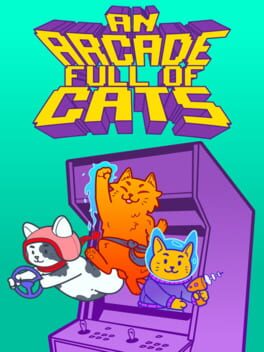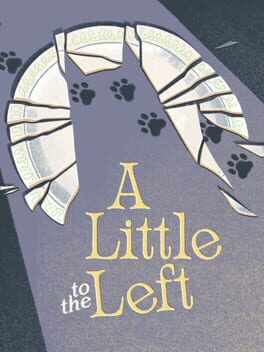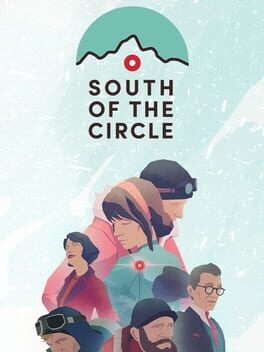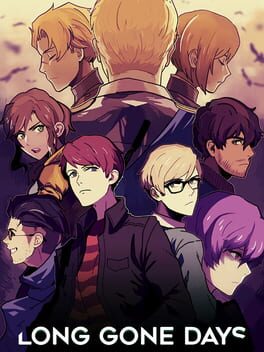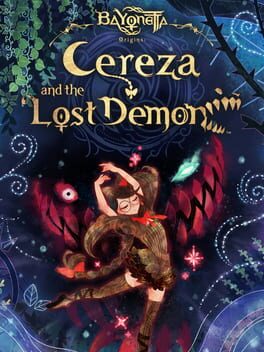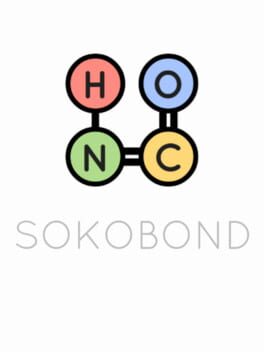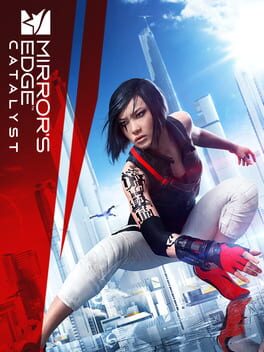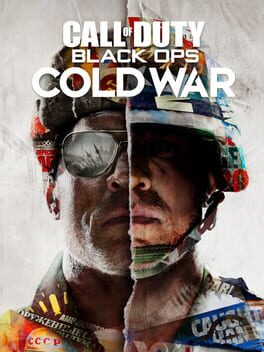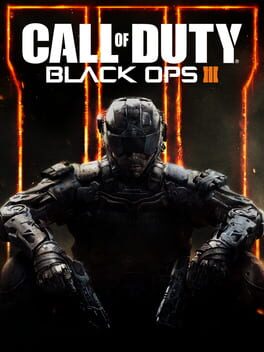Illusionary
Complete playthough with 100% of achievements unlocked. Children of Silentown is a decent but unexceptional point-and-click 'adventure', with an enjoyably spooky theme. The puzzles are for the most part fairly logical, though with occasional frustrating 'pixel-hints' required across a few locations. A song mechanic used to unlock different interactions with characters is interesting, if not as well-developed as it could have been. Overall, the game is worth a play for fans of the genre, but it isn't going to be memorable beyond that.
With FFVII Rebirth now with us, it's finally time to catch up on this expansion to its predecessor. At only two chapters in length, Episode INTERmission's scope for detailed story development is clearly limited, but this DLC proves a fun introduction to Yuffie. While I've got a lot of work to master the new combat mechanics that her introduction brings, I look forward to seeing how those develop further in the sequel, as well of course how her part in the core game's events plays out!
Completed with platinum trophy earned. Assassin's Creed: Mirage is a very solid game in the more traditional format of the series. It doesn't do anything revolutionary, but it doesn't need to, with interesting stealth scenarios and likeable characters playing out a well-written story. The 'investigations' system that replaces a more typical linear mission structure helps to add some further interest, though combat is a bit of a lowlight, with a new stamina-based system that proves more frustrating than it really ought to.
Complete playthrough. A cute but basic hidden-object game, with five scenarios in which to find a number of cats. It's a decent enough timewaster, but nothing much more than that. The small number of cats that are hidden until you interact with some other object in the environment, with no real indication of what that might be, are a particular frustration.
2022
All levels + free DLC completed. A solid puzzle game that will appeal to the "neat freak" in any of us, mostly A Little to the Left's tidying and ordering-based puzzles are mostly pleasantly satisfying to solve, just occasionally veering into having intended solutions that are just a little too obscure. All very attractively presented and with an enjoyable theme around cats underlying the stage progression.
2020
South of the Circle tells a well-written, affecting story of the relationship between two university academics, relived in the memory of the protagonist after a plane crash on the way to a research expedition to the Antarctic, alongside also following his attempts to find rescue from the crash. Gameplay is mostly very light, with the core mechanic being dialogue choices through choosing the 'mood' of a response rather than specific lines (for example, fear, empathy or enthusiasm). It's a system that works better than I honestly expected, though only a handful of these choices are actually meaningful to future events.
While it's perhaps disappointing that a greater degree of branching isn't possible, that's arguably outside the scope of what the game aims for and at the overall end, even if the differences in events don't account for much of the time that we see them playing out, they still feel quite deeply meaningful. This isn't a game with particularly lofty aims, but what it attempts it makes a laudable success of.
While it's perhaps disappointing that a greater degree of branching isn't possible, that's arguably outside the scope of what the game aims for and at the overall end, even if the differences in events don't account for much of the time that we see them playing out, they still feel quite deeply meaningful. This isn't a game with particularly lofty aims, but what it attempts it makes a laudable success of.
2023
Complete playthrough. Long Gone Days is a 2D RPG set amidst a modern-day war - a relatively unusual setting for the genre, which it uses well to facilitate some meaningful character and relationship development, exploring themes of friendship and loyalty, alongside moral dilemmas that conflicts naturally bring to light. The gameplay is admittedly relatively basic and, especially early on, the battle system doesn't provide a great deal of options - but some complexity does eventually come, as the party expands and develops. With no random encounters and limited healing options, the feeling is definitely one of an attritional struggle, very fitting for the setting. I wouldn't say that the game ever truly excels, being limited by that overall lack of complexity, but it's certainly been a worthwhile experience all the same.
Normal difficulty playthrough with 100% of collectibles, bonus chapter also completed (not attempting time trials). The number of games taking inspiration from Brothers: A Tale of Two Sons is frankly shocking, considering how effectively emotional that game was, but Bayonetta Origins is here to redress the balance somewhat. Following a young Bayonetta and her adopted demon as they attempt to escape an enchanted forest, the simultaneous two-character control is central to the gameplay, which is significantly more action-focused than Brothers. There's still plenty of puzzle-solving as you navigate the interconnected forest environments, but it's somewhat less bespoke than Brothers, while having combat encounters liberally dispersed around the game world. Inevitably the controls take a while to become familiar and the combat isn't especially deep, but overall the game's implementation of its various mechanics is commendable.
Perhaps the biggest detractor that I came across is that while the game's world is impressively large and diverse, away from the critical path (which has clear markers to help you along) it can become difficult to navigate, as the connections between each area aren't clearly indicated and require a fair amount of trial-and-error - which makes seeking out collectibles quite troublesome - even with a guide. While this means that the final part of the experience slows down significantly, overall Bayonetta Origins is an impressively novel take on this type of adventure game, which hopefully we might see more of in future.
Perhaps the biggest detractor that I came across is that while the game's world is impressively large and diverse, away from the critical path (which has clear markers to help you along) it can become difficult to navigate, as the connections between each area aren't clearly indicated and require a fair amount of trial-and-error - which makes seeking out collectibles quite troublesome - even with a guide. While this means that the final part of the experience slows down significantly, overall Bayonetta Origins is an impressively novel take on this type of adventure game, which hopefully we might see more of in future.
Completed with 100% of achievements unlocked (200/200G). Standing very much separate from the flow of the main five episodes, this addition to Telltale's The Expanse series sees a welcome change of character as it follows UN diplomat Chrisjen Avasarala as she tackles a political crisis. The chapter effectively captures the political intrigue from the show that's largely missing from the five core chapters, but can't really elevate the slow pace of the overall experience.
Completed with all achievements unlocked except for scavenge collection (850/1,000G). The Expanse is a decent but unexceptional title for Telltale Games' return, well-presented and with little sign of the technical weaknesses of some of their earlier games. The harshness of the setting from the TV show is well-captured here and the game fits nicely into the series' canon, with a handful of distinctive characters whose interactions are always interesting to see playing out. The game between these, however, feels really quite slow, largely involving a formula of navigation within or around the Artemis spaceship, picking up/interacting with an item, dialogue and then repeat. The complexity of the plot and the extent of events feels quite limited overall compared to recent contemporary Star Trek: Resurgence, for example, which is a shame given potential of the setting.
The game also commits a cardinal sin with its achievement design, featuring two sets of collectible-based achievements and a chapter select, but not allowing per-chapter clean-up of those collectibles - and unfortunately a full new playthrough really doesn't appeal for the sake of the two that I missed.
The game also commits a cardinal sin with its achievement design, featuring two sets of collectible-based achievements and a chapter select, but not allowing per-chapter clean-up of those collectibles - and unfortunately a full new playthrough really doesn't appeal for the sake of the two that I missed.
Completed with 100% of collectibles. My first experience with a Swery game, puzzle-platformer The Missing is certainly a memorable game, if not necessarily for altogether positive reasons. The LGBT themes at the core of its story are very well realised and I’m sure will resonate with many within that demographic. However, while I get that it’s likely intended to have a metaphorical meaning, the darkness underlying the core puzzle-solving mechanic really doesn’t appeal to me - this sees the player-character severely injuring herself to progress and solve puzzles (the most basic example being dismemberment allowing access to smaller spaces). The core gameplay is decent if unexceptional, with some interesting puzzles but frequently feeling quite clunky in practice – but at roughly 4-5 hours for a complete playthrough, it fortunately doesn’t have time to become too frustrating.
2014
All puzzles completed. Taking the block-shifting premise of traditional Sokoban and giving it a chemistry-themed spin, the objective of Sokobond’s levels is to form molecules from various atoms within a 2D grid. Complexity comes first from each type of atom requiring different numbers of bonds (1 for hydrogen, 2 for oxygen, etc.), then later from additional elements within each level that can add/remove bonds, cause rotation, etc. A little knowledge of chemistry may be helpful here given the familiarity that it brings with the overall concept of covalent chemical bonds, but nothing beyond basic high school level and it’s certainly not required – all the information needed is clearly displayed on screen.
Elegantly designed throughout, the puzzles nonetheless become challenging as they progress, and I’m not ashamed to admit to having resorted to a guide to get through a few – so there’s certainly a hefty challenge here for those who want to test their special visualisation skills!
Elegantly designed throughout, the puzzles nonetheless become challenging as they progress, and I’m not ashamed to admit to having resorted to a guide to get through a few – so there’s certainly a hefty challenge here for those who want to test their special visualisation skills!
Complete playthrough. Mirror's Edge: Catalyst has reminded me quite how fun free-running can be in gaming; while I can't claim to be the greatest at it; this has reawakened a desire to play more. Catalyst builds nicely on the original game, shifting to a well-realised open-world setting that still manages to have numerous well-crafted running routes - and while to my mind many of the optional runs that are generously scattered throughout the rooftops are a bit too demanding on their time limits, it's undeniably satisfying to master a run.
A red highlight to a suggested run path is generally effective in signposting where to go, though not always - and there were more than a handful of times throughout my playthrough that the flow of a run was interrupted by lack of clear navigation. However, when you know where you're going, free-running controls work pretty much perfectly Conversely, combat sequences are one of the game's weaker areas, with unskippable arenas used a bit too much; fortunately, there were only a couple of times that these proved a significant obstacle in the story, where I hadn't given much priority to the combat skill tree.
There's a decent story here and some enjoyable character dynamics, even if its fairly short length doesn't allow for these to be developed all that far. Finally, the game gets a full +1 to its score from featuring the second greatest licenced theme in all of gaming.
A red highlight to a suggested run path is generally effective in signposting where to go, though not always - and there were more than a handful of times throughout my playthrough that the flow of a run was interrupted by lack of clear navigation. However, when you know where you're going, free-running controls work pretty much perfectly Conversely, combat sequences are one of the game's weaker areas, with unskippable arenas used a bit too much; fortunately, there were only a couple of times that these proved a significant obstacle in the story, where I hadn't given much priority to the combat skill tree.
There's a decent story here and some enjoyable character dynamics, even if its fairly short length doesn't allow for these to be developed all that far. Finally, the game gets a full +1 to its score from featuring the second greatest licenced theme in all of gaming.
Campaign completed on Regular difficulty. A big improvement on Black Ops II, Cold War returns the game's setting to the early 1980s, nailing the feeling of Cold War espionage with a really fun, if short, campaign. With a set of well-realised characters - some returning from Black Ops 1 and *2 - we also see the introduction of branching choices with a modest impact on the overall direction of the story for some added interest. The questionable choices from Black Ops III around multiplayer focus and limited in-mission gun variety are pleasingly walked back here, leaving a campaign that, while hardly innovative, is a blast to play through. Technical performance as a first native PS5 CoD* game is also excellent, with some stunning visuals on offer.
Campaign completed on Regular difficulty with 100% of collectibles. With Black Ops III, Call of Duty takes its campaign in a heavily multiplayer-focused direction - and unfortunately, while I'm probably in the minority, this really isn't what I come to the series for. In place of 'epic' setpieces, the majority of encounters feel more focused on the sheer weight of enemy numbers, losing some of the more interesting level design. With the player character simply called "Player" in-game, this also makes the plot significantly less relatable and engaging, lacking the personal back-and-forth and camaraderie that suffuses the Modern Warfare subseries. The core gunplay is solid enough, of course, though the inability (by design) to pick up most enemy weapons leads to less experimentation. A cybernetical abilities (which might as well be a magic system) offsets this somewhat, though to be honest I never found all that much need to use it, especially later in the game where there's little in the level design to remind you to use these abilities. Finally, the division of campaign progress between online and local instances is another cause of frustration - while you're pushed towards playing online by default, an online session can't sustain itself between different times of play, which doesn't play well with modern implementations of Rest Mode and Quick Resume, as well as not being altogether stable in normal play.
